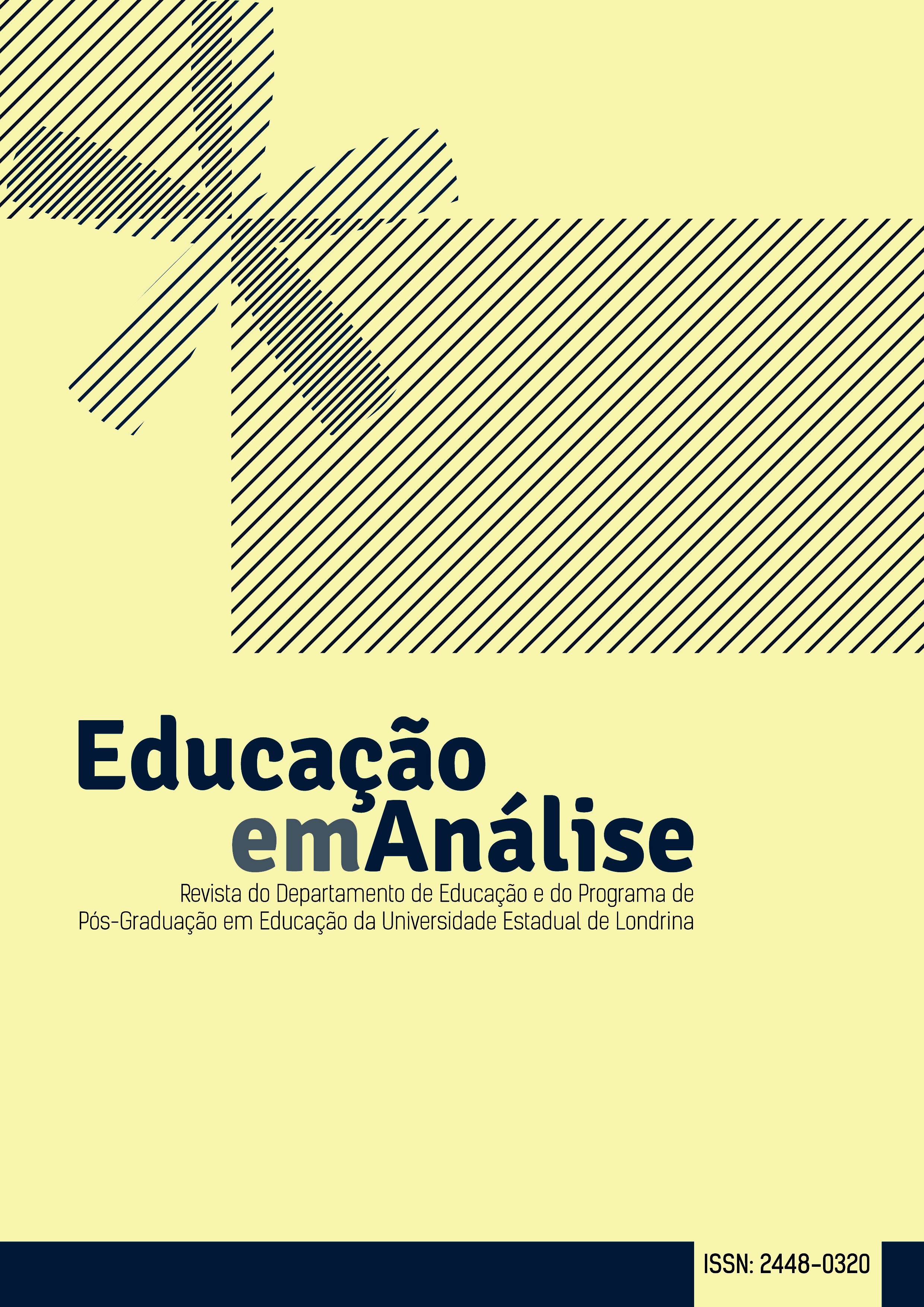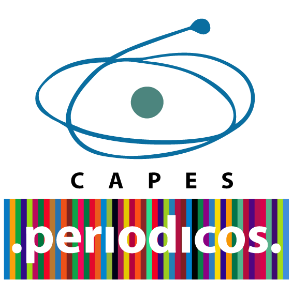Remote teaching of journalism: teacher perceptions in a pós pandemic context
DOI:
https://doi.org/10.5433/1984-7939.2024v9n2p573Keywords:
remote learning, Digital technologies, Education, Journalism, Conditions of Teaching WorkAbstract
The theme of this article is teaching mediated by digital Information and Communication Technologies (ICT) during the period of the Covid-19 pandemic (2020-2022). The delimitation of the theme focuses on the perceptions of teachers of Journalism courses, specifically in the public network in the North of the country, regarding the process. Having complexity as an epistemological basis, content analysis on the responses obtained through a questionnaire was adopted as a methodological process. The general objective was outlined: to reflect on the teaching-learning model in remote mode, imposed during the Sars-Cov-2 pandemic. As specific objectives we list: mapping teachers' perceptions regarding the teaching-learning processes adopted in the remote system; describe the main tools used by teachers during the process; map your perceptions, challenges, difficulties and experiences acquired. As a result, the research identified the Google platform and its tools as the most popular among teachers who answered the questionnaire; the lack of institutional support for the development of activities, which resulted in overlapping of domestic and professional space, resulting in greater household expenses and no financial compensation; the need to open dialogue channels to reflect on the experience and process of adopting remote classes in Journalism courses at federal universities.
Downloads
References
BARDIN, Laurence. Análise de Conteúdo. Lisboa: Edições 70, 1977.
BRASIL. Ministério da Educação. Portaria nº 544, de 16 de junho de 2020. Dispõe sobre a substituição das aulas presenciais por aulas em meios digitais, enquanto durar a situação de pandemia do novo coronavírus - Covid-19, e revoga as Portarias MEC nº 343, de 17 de março de 2020, nº 345, de 19 de março de 2020, e nº 473, de 12 de maio de 2020. Diário Oficial da União: seção1, Brasília, DF, ano 114, p. 62, 17 jun. 2020. Disponível em: https://abmes.org.br/arquivos/legislacoes/Portaria-mec-544-2020-06-16.pdf. Acesso em: 22 set. 2023.
BELLONI, Maria Luiza. Educação a Distância. 3. ed. São Paulo: Edição Autores Associados, 2003.
CALDAS, Lucas Rogério dos Reis; TELES, Maria Cecília; GUIMARAES, Aellanene Luiz Rosa; SOUSA, Josemara Fernandes Guedes de. Educação a distância durante a pandemia do COVID-19: percepção docente, qualidade de vida e ansiedade entre professores universitários de Minas Gerais, Brasil. Research, Society and Development, Itajubá, v. 11, n. 1, p. 1-15, 2022. Disponível em: https://rsdjournal.org/index.php/rsd/article/view/25041. Acesso em: 20 dez. 2022.
CONTE, Elaine; OURIQUE, Maiane Liana Hatschbach; BASEGIO, Antonio Carlos. Tecnologia assistiva, direitos humanos e educação inclusiva: uma nova sensibilidade. Educação em Revista, Belo Horizonte, n. 33., p. 1-24, jul 2017. Disponível em: https://www.scielo.br/j/edur/a/xY3m8QFyHQwXzfXykFHYFHz/abstract/?lang=pt# Acesso em: 20 dez. 2022.
FREIRE, Paulo. Pedagogia da autonomia: saberes necessários à prática educativa. São Paulo: Paz e Terra, 1996.
KUBO, Olga Mitsue; BOTOMÉ, Sílvio Paulo. Ensino-aprendizagem: uma interação entre dois processos comportamentais. Interação em Psicologia, Curitiba, v. 5, p. 1-19, 2001. Disponível em: https://revistas.ufpr.br/psicologia/article/view/3321. Acesso em: 22 set. 2023.
MORAN, José Manuel. Ensino e aprendizagem inovadores com tecnologias. Informática na Educação: Teoria & Prática, Porto Alegre, v. 3, n. 1, p. 137-144, 2000. Disponível em:
http://seer.ufrgs.br/index.php/InfEducTeoriaPratica/article/view/6474 Acesso em: 18 fev. 2022.
MORIN, Edgar. Os sete saberes necessários à educação do futuro. 2. ed. São Paulo: Cortez; Brasília: UNESCO, 2000.
PAIVA, Vera Lúcia Menezes de Oliveira e. Ensino remoto ou ensino a distância: efeitos da pandemia. Estudos Universitários, Recife, v. 37, n. 1/2, p. 58-70, 2020. Disponível em: https://periodicos.ufpe.br/revistas/estudosuniversitarios/article/view/249044. Acesso em: 22 set. 2023.
PELLANDA, Nize Maria Campos; PINTO, Maira Meira. Autonarrativas no fluxo da pesquisa: operando com operações dos observadores. Educar em Revista, Curitiba, n. 57, p. 261-274, 2015. Disponível em https://www.scielo.br/j/er/a/zzD79mGcFyjn4mF8LjLGMRf/?lang=pt&format=pdf Acesso em: 20 dez. 2022.
SILVA, Francisco Mendes da. Aspectos relevantes das novas tecnologias aplicadas à educação e dos desafios impostas para a atuação dos docentes. AKRÓPOLIS - Revista de Ciências Humanas, Umuarama, v. 11, n. 2, abr./jun. 2003. Disponível em: https://core.ac.uk/download/pdf/235577148.pdf. Acesso em: 20 dez. 2022.
UNIVERSIDADE FEDERAL DO AMAZONAS. Conselho de Ensino, Pesquisa e Extensão. Resolução nº 003, de 12 de agosto de 2020. Aprova o Regulamento do Ensino Remoto Emergencial (ERE) e o Calendário Acadêmico Especial 2020, no âmbito do ensino de graduação da UFAM. Manaus: UFAM, 2020. Disponível em: https://edoc.ufam.edu.br/bitstream/123456789/3497/1/SEI_UFAM%20-%200276638%20-%20Resoluc%CC%A7a%CC%83o_0032020_CONSEPE_ERE.pdf. Acesso em: 22 set. 2023.
UNIVERSIDADE FEDERAL DO AMAZONAS. Portaria GR Nº111 de 20 de janeiro de 2022. Manaus: UFAM, 2022. Disponível em: https://edoc.ufam.edu.br/bitstream/123456789/5149/1/Portaria%20GR%20111.2022%20-%20atividades%20preferencialmente%20remotas.pdf . Acesso em: 27 nov. 2023.
VALENTE, José Armando; MORAN, José Manuel; ARANTES, Valéria Amorim (org.). Educação a distância: pontos e contrapontos. São Paulo: Summus, 2011.
VALENTE, José Armando. Informática na educação: confrontar ou transformar a escola. Revista Perspectiva, Florianópolis, v. 13, n. 24, p. 41-49, jan. 1995. Disponível em: https://periodicos.ufsc.br/index.php/perspectiva/article/view/10703. Acesso em: 22 set. 2023.
Downloads
Published
How to Cite
Issue
Section
License
Copyright (c) 2024 Rafael Sbeghen Hoff, Poliany Rodrigues Silva

This work is licensed under a Creative Commons Attribution-NonCommercial 4.0 International License.
Os artigos publicados na Revista Educação em Análise estão sob a Licença Creative Commons Atribuição 4.0 Internacional, garantindo Acesso Aberto. Deste modo, os autores mantêm os direitos autorais de seus trabalhos e, em caso de republicação, solicita-se que indiquem a primeira publicação nesta revista. Essa licença permite que qualquer pessoa leia, baixe, copie e compartilhe o conteúdo, desde que a devida citação seja feita. Além disso, autoriza a redistribuição, adaptação e criação de obras derivadas em qualquer formato ou meio, incluindo uso comercial, desde que a atribuição à revista seja mantida.
A revista se reserva o direito de efetuar, nos originais, alterações de ordem normativa, ortográfica e gramatical, com vistas a manter o padrão culto da língua e a credibilidade do veículo. Respeitará, no entanto, o estilo de escrever dos autores. Alterações, correções ou sugestões de ordem conceitual serão encaminhadas aos autores, quando necessário.
As opiniões emitidas pelos autores dos artigos são de sua exclusiva responsabilidade.
























